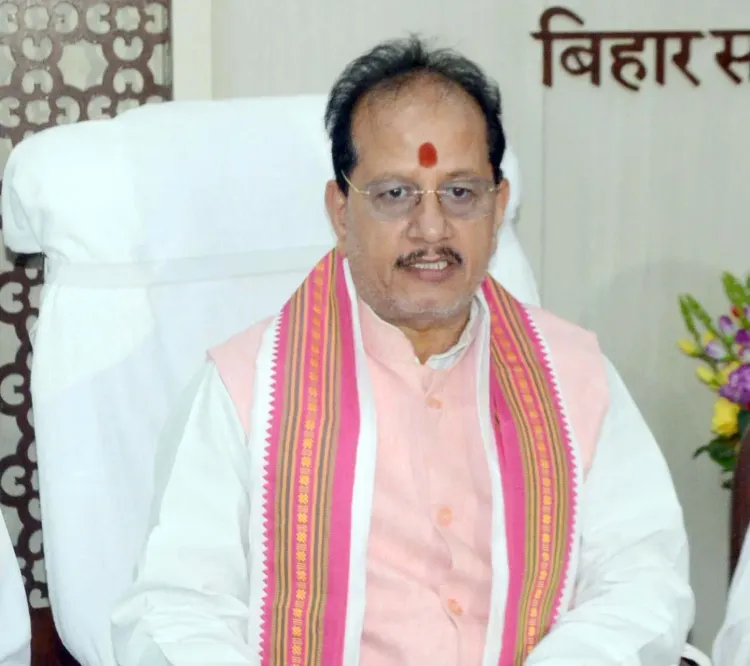Is Rahul Gandhi an Anarchist Rather Than a Leader?

Synopsis
Key Takeaways
- Deputy CM Sinha criticizes Rahul Gandhi for undermining the law.
- Two FIRs filed against Gandhi for unauthorized event.
- Debate over leadership and responsibility in democracy.
- Congress defends Gandhi as a voice for marginalized communities.
- Political tensions rise in Bihar amid differing viewpoints.
Patna, May 16 (NationPress) Bihar's Deputy Chief Minister Vijay Kumar Sinha delivered a sharp critique of Congress leader Rahul Gandhi on Friday, accusing him of undermining the rule of law and engaging in political theatrics.
His comments followed Rahul Gandhi's decision to hold an unauthorized event at the Ambedkar Hostel in Darbhanga, despite police orders prohibiting such gatherings.
In a statement to reporters in Patna, Sinha asserted: "These individuals act as anarchists and disregard the law under the pretense of dynastic superiority. They mock the Constitution and show a blatant disregard for democracy."
Rahul Gandhi spoke to students at the Ambedkar Hostel even after the district administration denied him permission and suggested an alternative venue.
In response to his actions, two FIRs were filed—one for breaching prohibitory orders and another for conducting an event without authorization.
The initial FIR was lodged at the Laheriyasarai police station by Duty Magistrate Khurshid Alam, who was present at the location. This report notes a breach of prohibitory orders as outlined in Section 163 of the Bharatiya Nyaya Sanhita (BNS).
The second FIR was submitted by District Welfare Officer Alok Kumar, who accused Rahul Gandhi and others of forcibly organizing an event at the Ambedkar Welfare Hostel without official approval.
The police have implicated 20 Congress leaders, including Rahul Gandhi, in the FIRs, alongside 100 unidentified individuals.
Deputy CM Sinha criticized Gandhi's political style, stating: "They aim to be performers rather than leaders. However, this is a land of democracy, where the public seeks a leader, not an actor."
He further accused Gandhi of "shedding crocodile tears" and engaging in vote-bank politics disguised as public outreach.
In contrast, Congress leaders defended Rahul Gandhi's appearance, claiming it was a move to amplify the voices of Dalit students and to "reveal" the state government's alleged insensitivity towards marginalized groups.










